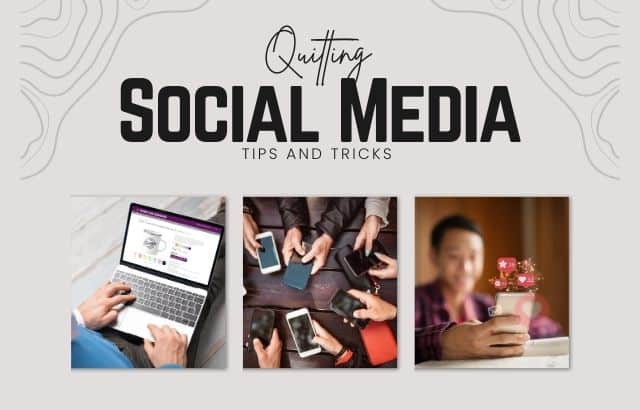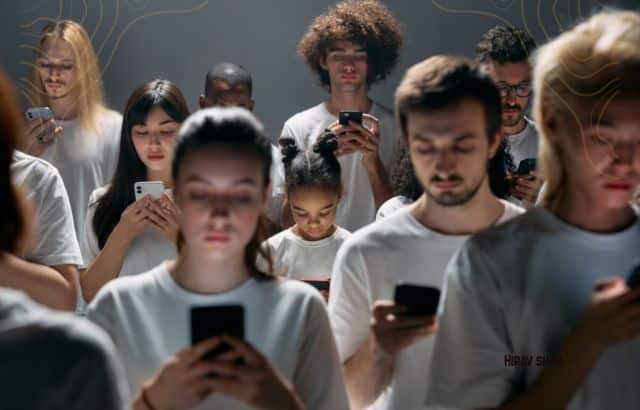Social media has become an omnipresent part of daily life, and while it brings people together, it also carries hidden costs to our mental health, productivity, and even our real-world relationships. If you’ve ever felt overwhelmed, stressed, or exhausted by the constant barrage of information, likes, shares, and posts, it might be time to consider taking a step back. In this guide, we’ll explore the potential negative impacts of social media, the benefits of quitting, and provide actionable steps and strategies to help you disconnect, refocus, and lead a more fulfilling life.
Table of Contents
The Negative Effects of Social Media on Mental Health
While social media can be a valuable tool for staying connected and informed, it often leads to significant psychological distress. Research has consistently shown that overuse of social media platforms can result in:
- Increased anxiety and depression: The pressure to present a curated, perfect version of oneself can result in constant stress. The fear of missing out (FOMO) and the endless comparison to others can exacerbate feelings of inadequacy and anxiety.
- Decreased self-esteem: Constant comparison to others’ highlight reels can lead to body image issues and lower self-worth.
- Social isolation: Paradoxically, increased time on social media can reduce real-life social interactions, leaving people feeling more lonely and disconnected.
Incorporating social media into our lives can lead to constant notifications, stress, and unhealthy online habits that negatively impact emotional and mental well-being. Recognizing these effects is the first step toward a healthier relationship with digital spaces.
The Benefits of Quitting Social Media
Choosing to step away from social media offers numerous benefits that can have a profound impact on your mental, emotional, and physical health:
- Reduced Anxiety and Depression: By reducing the constant barrage of comparison, judgment, and online pressures, you can lower your anxiety levels, and in many cases, reduce feelings of depression.
- Better Sleep: No more late-night scrolling or overstimulation. With less time spent on your devices, you may find that your sleep improves, allowing you to wake up refreshed and energized.
- Improved Productivity: Social media is one of the biggest distractions in today’s world. By quitting, you free up valuable time to focus on meaningful tasks and goals.
- More Meaningful Relationships: Taking a break from social media can help you cultivate deeper, more genuine connections with people in your life, both online and offline.
- Increased Focus and Creativity: With fewer distractions, you may find that your ability to concentrate improves, leading to greater creativity and a sense of accomplishment in your work or personal projects.
How to Quit Social Media: Steps to Take
Quitting social media is a personal choice, and while it can be challenging, it’s well worth the effort. Here’s a roadmap to make the process easier:
1. Set a Clear Goal
Decide on a specific date to quit and set clear intentions for how long you want to stay off. For example, start with a week, then gradually extend your break. Alternatively, you may decide to quit permanently—whatever feels right for you.
2. Delete the Apps
To prevent temptation, start by deleting social media apps from your phone and tablet. It may sound simple, but removing easy access can significantly reduce your likelihood of impulsively checking your feeds.
3. Notify Your Social Circle
Inform your friends, family, and anyone else who might be concerned about your absence online. Let them know how they can reach you (text, email, or in person). A simple message like: “I’m taking a break from social media for a while to focus on my well-being. I’d love to keep in touch—here’s how you can contact me.”
4. Find Meaningful Alternatives
Instead of scrolling, fill the time you would typically spend on social media with activities that nourish you. Whether it’s reading, exercising, cooking, journaling, or learning something new, find activities that bring you joy, fulfillment, and personal growth.
5. Stay Accountable
Find someone—maybe a friend or family member—to support you in your social media break. Accountability can help you stay on track, especially if you’re tempted to return to old habits.
Replacing Social Media with Healthier Habits
The key to quitting social media without feeling lost is replacing it with activities that improve your well-being. Here are some suggestions:
- Exercise: Go for a walk, try yoga, or pick up a sport. Physical activity has been shown to improve mood and reduce stress.
- Reading: Whether fiction, self-help, or non-fiction, reading helps stimulate the brain and provides a mental escape that’s far healthier than scrolling.
- Mindfulness and Meditation: Taking time to practice mindfulness or meditate can help center your thoughts, reduce stress, and improve your mental clarity.
- Creative Hobbies: Writing, drawing, cooking, or photography can help you tap into your creativity and self-expression without the pressure of online validation.
How to Stay Off Social Media
Once you’ve decided to quit, the next challenge is staying off. Here are a few practical tips to help you resist temptation:
1. Use Website Blockers
Install website blockers or productivity apps to restrict access to social media websites on your devices. These can help keep you focused by eliminating easy access to your old distractions.
2. Create Tech-Free Zones
Designate certain areas of your home (e.g., your bedroom or kitchen) as tech-free zones where social media usage is banned. This encourages more face-to-face interaction and reduces screen time.
3. Set Social Media Boundaries
If you decide to stay on social media in some capacity, create firm boundaries. For example, allow yourself to check social media only once a day for 15 minutes.
4. Seek Support
Join a support group, whether online or offline, where you can share your struggles and successes with others who are also trying to quit.
FAQs: All Your Questions About Quitting Social Media
Q1: Will I lose touch with friends and family if I quit social media?
A1: Not necessarily! You can maintain connections via phone calls, texts, and in-person meetups. Social media is just one way to communicate; there are many other avenues for staying connected.
Q2: How long should I take a break for?
A2: It depends on your goals. You might start with a short break (like 7-14 days) and assess how you feel. If you’re enjoying the break, extend it. Some people opt for longer-term or even permanent disconnection.
Q3: Can I still use social media for business?
A3: Absolutely! If social media is important for your career or business, you can set strict boundaries around its use—such as limiting it to professional networking and content creation, rather than mindless scrolling.
Q4: What if I feel anxious without social media?
A4: It’s normal to feel anxious at first, especially if social media has been a large part of your routine. But over time, as you engage in healthier habits and develop new routines, the anxiety tends to decrease.
Final Thoughts
The constant flood of notifications, likes, and shares has a significant impact on our mental clarity, focus, and overall well-being. By quitting social media, you reclaim your time, productivity, and mental health. Business strategist Hirav Shah, known as The Game Changer, emphasizes that just as businesses declutter to optimize operations, individuals need to declutter their digital lives to focus on what truly matters. In a world of constant digital noise, it’s crucial to step back, reset, and prioritize your mental well-being.
Simple Calculations: The Cost of Time on Social Media
Consider this: if you spend just 1 hour per day on social media, that adds up to 365 hours per year—roughly 15 full days of your life spent scrolling. Imagine how much more you could accomplish or enjoy with that time.
It’s all about making conscious choices and reclaiming your time, creativity, and peace of mind.
Ready to disconnect and revamp your life? Let’s take the first step together!

















